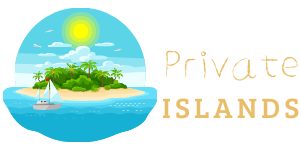Having a Private Island sounds like a fantasy reserved for the richest of the rich, conjuring images of celebrities traveling to their private sandbanks on yachts and enjoying ultimate privacy. It’s true that islands are among the most coveted pieces of real estate on the planet, with a cachet synonymous with ultra-luxury and a whiff of aristocracy. But despite the fact that a private island might be an attractive proposition for people with lots of cash to burn, it’s not an easy thing to make a reality.
There are three different types of buyers who are interested in purchasing an island: developers looking to develop the land into a resort, individuals who are seeking out an island for personal use and perhaps a few luxury buildings, and those with existing waterfront property who are seeking to upgrade to an island in the same region to gain more privacy and space. Regardless of the type of buyer, a lot of planning needs to go into the process to ensure that you are successful in landing your dream property.
One of the biggest things that a new island owner will need to take into consideration is what laws they can expect to have to follow on their property. Since every piece of land in the world is owned by a country, even if it is privately owned, that island will still be subject to the laws set by that country’s government (with North Sentinel Island being an exception). Having an understanding of this beforehand can help you narrow your search for an island and not spend your money on something that may not be able to be legally used as intended.
The other major factor that a potential island owner will need to consider is what kind of access and infrastructure will be available on the island. For example, the island will need to have a water supply – and that could mean either rainwater collection or state-of-the-art desalination systems. If the island will be used for recreational purposes, the owner will also need to think about how difficult it will be to bring in equipment for those activities.
Finally, an island owner will need to decide how much they can afford to spend on their island. Once they have their budget in mind, they can start their search on websites that offer filters by cost. They should also be sure to consider other factors that might affect their ability to enjoy the island, including its weather, which country’s jurisdiction it’s under, and how easy it is to get to the island. Having all of this information in hand will help them to find the right island for their unique lifestyles.
